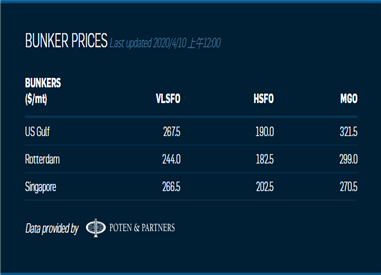 Chinese lessors warn on rising shipping defaults
Chinese lessors warn on rising shipping defaults
A wave of bad loans may begin to unfold in the next three to six months. Shipping companies will be forced to sell off assets to stay afloat if the economic situation does not improve. The risk appetite of Chinese lessors has also decreased this year, with extra caution being exercised for new deals
CHINESE shipping lessors are growing vigilant about their coronavirus-hit borrowers, with some forecasting a surge in bad debts in the coming months should economic activity remain frozen by the pandemic.
Most shipping companies still have enough cash in pocket to maintain their business for now, said a China-based leasing executive.
However, the next three to six months may start to see a flock of defaults within the industry, followed by a wave of asset sell-offs, he said.
“I think some shipping companies will begin to encounter a cash crunch from the end of April if the pandemic-led economic shutdown continues.
“When that moment comes, assets will not be sold based on their value, but on how much cash the seller needs to stay afloat,” said the executive.
The remarks echoed what some of the banking panellists told a Capital Link forum earlier this week.
Shreyas Chipalkatty, global head of shipping at Citi, said at the time that the industry would see “significant problems at all levels of the shipping business” if the virus-related problem lasts for longer than three months.
Fellow speaker Bill Guo, executive director for shipping at ICBC Leasing, said his company has started to received payment waivers. He said: “If this lasts two or three months, there will be problems.”
Nevertheless, the leasing source who spoke to Lloyd’s List said he was less concerned about the financial strength of his own peers, though, especially lessors owned by large Chinese banks.
The bank-backed leasing firms, which are ranked as financial institutions, can tap the interbank market based solely on the credit relationships they have established, he argued.
“That means we can easily get short-term liquidity because banks are have access to lots of money with central banks’ quantitative easing policy right now,” he said. “That’ll even improve our ability and bargaining power to offer the needed services to clients.”
Demand for sale and leaseback arrangements is also expected to rise as more owners will need to raise cash to keep their operations running.
Nevertheless, the risk appetite of Chinese lessors has palpably been curbed by the shockwave of the outbreak this year, with extra caution being exercised for new deals, said another person from a large Chinese leasing house.
He reaffirmed that some lessors have already received requests to defer charter payments.
“It is likely to be more difficult for many shipping companies this time round than in 2008,” he said.
Leasing houses from China have become a major force in the international ship finance arena after rapid expansion since the 2008 financial crisis. Their total outstanding shipping assets topped $59bn as of end-2019, up 12.8% from 2018, according to consultancy Smarine.
Today's Bunker Prices:




